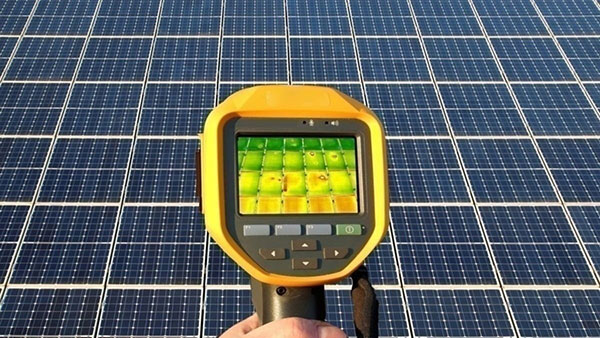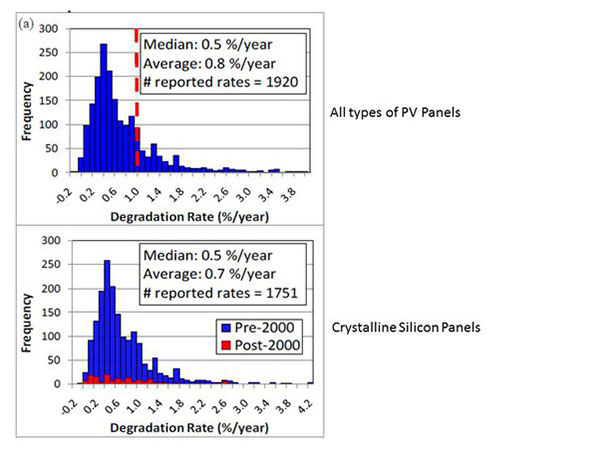BLOG
Why do solar panels only last 25 years?
2024-04-07
Understanding the Lifespan of Solar Panels
Solar panels have a long lifespan and usually work up to 25–30 years. This is because solar panels are made of robust materials such as tempered glass and aluminum frames, which protect the photovoltaic cells from wind, rain, and temperature changes.Factors Influencing Solar Panel Degradation
Any solar panel will experience a slowdown in efficiency or degradation over time. On average, the decline is about 0.5% on average per year or 0.8%. This means that initially, your panel will produce 100 watts and after 25 years, your panel will only produce about 92.5 watts. There are several factors that encourage these factors:- Exposure to UV light: after 25 years, the encapsulant material that protects the solar cell can yellow and become less transparent, meaning less light hits the solar cell.
- Thermal cycling: daily temperature changes promote expansion and shrinkage of the materials in the solar panel, leading to microcracks in cells.
- Moisture ingress: when the sealant that surrounds the edge of the panel degrades, moisture can penetrate the panel and cause corrosion or delamination of the logistics.
Warranty and Performance Guarantees
Manufacturers usually provide a 25-year performance guarantees, which means that the panels will produce up to 80 percent of the capacity compared to the initial ones. Some high-quality panels offer a 30-year performance guarantee. Thus, the products are also offered the warranty from defects in the product materials. Either which way you look at this, the solar panels will continue to degrade over time. The fundamental way to make your panels serving long, as any other surface or construct that provides benefits, is to keep the solar panels clean and inspect the equipment regularly for physical damage. An experienced electrician should also check the electrical connections and mounting system on a timely basis to ensure that everything is in good condition. Significant influence on the panel’s durability has the materials used for their production – from electricity generating cells to the glass on their exterior. Glass is considered the most common and durable materials. The frame of the panels is made of aluminum; electric current produced by the panels is conveyed using high-grade copper or silver. Desirable solar panel longevity increases with the use of advanced solar panel materials, which is often limited by the cost. For the majority of solar panels the following factors influence their durability and service life:- The quality of materials whose properties will have positive influence on panel’s quality, advanced materials for the protecting protective glass, high-grade wiring;
- The technology of the panels’ make also has a significant impact – how they are glued and assembled;
- The quality of the equipment reception also matters – whether it is a inverter, charge controller, converter, and a battery. Examples of materials that have a positive impact on the solar panels longevity include tempered glass, which is used for many construction in the field of final consumption, framing glass, a construction of elements for which are made of aluminum, and covers from environmental influences are reliable therein – all this is “tried and tested“ and does not cause any special questions.

